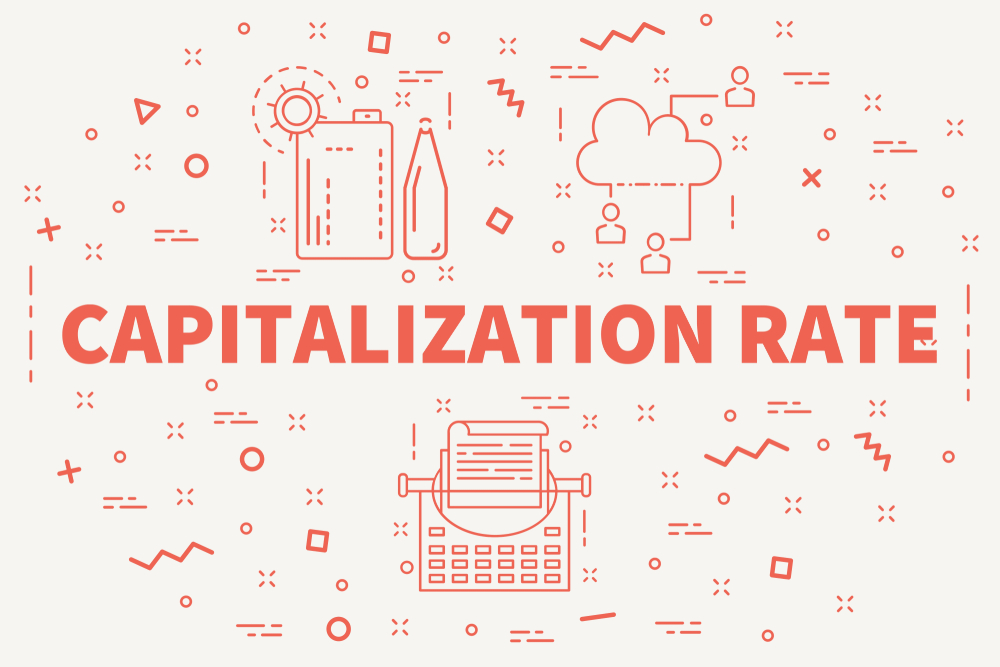What is a Cap Rate?
Cap rate is short for “capitalization rate.” It’s a basic formula: net operating income over the current market value of the asset.
It’s one of the most popular formulas in real estate.
A better understanding of the cap rate might help you be a better real estate expert, whether you’re a broker, investor, appraiser, or just someone who likes to read and learn about real estate, and in this article, we’ll explain why.
Why Do Cap Rates Matter?
Cap rates are important because they’re used to distinguish the returns of various investments. At first glance, one investment might seem better than another. Let’s say, for instance, you’re looking at two properties: one of them is in a big, bustling city and the other is in the suburbs, about an hour’s drive away from the first property. Let’s imagine that the property in the city brings in $1500/month and the property in the suburbs brings in $950/month.
Right off the bat, most amateur investors will say that the first property is the better investment because it brings in the most money. This isn’t necessarily true at all.
And you can use the cap rate to help you figure out why.
How Do I Calculate a Cap Rate?
So, going along with the example provided above, let’s calculate the cap rates for two hypothetical properties to find out which one is likely the better investment.
First, you need to find out the net operating income. That’s all the money you have coming in (revenue) minus management costs, taxes, maintenance, PMI, regular home insurance, special assessments, and HOA fees (expenses).
So our property in the city is a duplex that pulls in $1500/month. That’s $18k/year. However, taxes in our fictional city are pretty high, at $3.6k/year. After you factor in all of your other expenses, you’d really only be making $12k/year on the property, which an appraiser valued at $280,000.
The property in the suburbs pulls in a less flashy $950/month. However, taxes are pretty low, at only $1.5k/year. After you calculate all of the other expenses, it brings in roughly $9k/year. An appraiser valued this property at $150k.
The cap rate, then, for our first property is $12k (our net operating income) divided by $280k (the value of the asset). The result? 4.2%
However, the cap rate for our second property is $9k (our net operating income) divided by $150k (the value of the asset). The result for this property? 6%.
(The real initial cap rate for each property is actually going to show that the one in the suburbs is much, much better because — to keep things simple — we didn’t factor in the closing costs of each deal. It’s going to be 6%, roughly, either way and the lower-cost property is going to be, well, lower-cost).
The Hidden Benefit of Calculating Cap Rates: Doing Your Due Diligence
You might be thinking, “Okay, I get it. Obviously, if expenses are lower on one property than they are on another property, that lower-maintenance property is going to be more valuable as an investment. This isn’t rocket science. I don’t need the cap rate to tell me that.”
You’re right, but you might be overlooking a key benefit to calculating the cap rate: it forces you to crunch the numbers on all of the factors that you might be overlooking.
When it comes to real estate, as in most business transactions, it helps to look at the problem as logically as you possibly can, because emotions can muck up your thinking and cause you to buy something that, in hindsight, wasn’t a good deal at all.
By calculating the cap rate, you prove to yourself — and to other potential business partners and investors — that you’re able and willing to take your emotions out of the equation.
Conclusion: What is a Cap Rate? (And Why Does it Matter?)
A cap rate is a basic formula: net operating income over the market value of an asset.
Out of an array of options, it can help you determine which one is the best, and it also forces you to crunch the numbers on all of your potential expenses to actually uncover your net operating income. That number is often very different from your revenue, a number which a lot of amateurs get hung upon.

